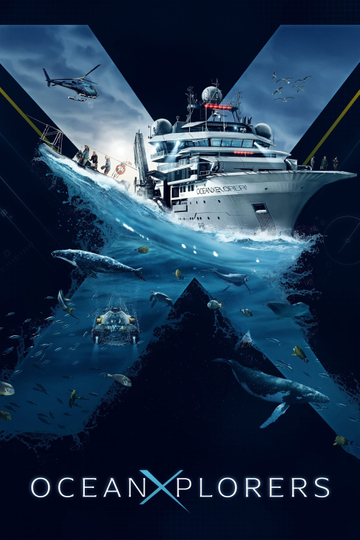Season 1 Plot
Traveling aboard the OceanXplorer, OceanX's state-of-the-art scientific research and exploration vessel, to investigate the farthest frontiers of the world's oceans, 80% of which are entirely unknown. Armed with advanced technology, a hand-picked team of intrepid explorers and scientists, National Geographic Explorers and other ocean experts embark on a global odyssey to solve some of the ocean's greatest mysteries through the lives of its animals and their ecosystems.
OceanXplorers Season 1 aired on August 18th, 2024.
Season 1 Episodes
1. Realm of the Humpbacks
The team travels to the Dominican Republic in the Caribbean to reveal the greatest secrets in the lives of the North Atlantic humpback whale; they witness a mother defend her calf in the ultimate ocean battle with a pack of orcas.
2. Giants of the Deep
In the Azores, the team follows the elusive sperm whales to their hunting grounds a mile beneath the surface, where they discover the secret lives of these deep-diving whales.
3. Jurassic Shark
The team is in the Azores to tag the sixgill shark and learn more about its nightly patterns hunting for food in the abyss; the team tags and retrieves valuable data, uncovering why this shark undertakes its epic journey from the depths at night.
4. Hammerhead Highway
The team is in the crystal-clear waters of Bimini in the Bahamas to witness the incredible journey of the great hammerhead shark; as the team follows the shark's migration, they discover the secrets of how these animals navigate the vast ocean.
5. Kingdom of the Polar Bear
The team's mission is to figure out if Svalbard's polar bears are adapting to their environment; they face this giant of the Arctic Ocean and scale a glacier to learn how much time is left for one of the most critical habitats for polar bears.
6. Ice Giants
Learning how a population of bowhead whales, once hunted almost to extinction, is faring today; the team is the first to observe the feeding strategies of the deep-sea Greenland shark, an animal that can live for more than 400 years.











































